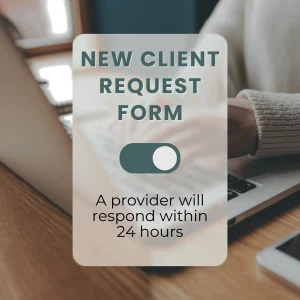
Boost Emotional Intelligence (EI) With these 5 Skills
Emotional intelligence (EI) refers to the capability to identify, understand, manage, and use your own emotions in positive ways. It also involves recognizing the emotions of others, enhancing both personal and professional relationships. EI is a vital part of developing social skills, conflict resolution, and self-awareness, making it a crucial skill set in both personal growth and career success.
Why Emotional Intelligence Matters
Emotional intelligence acts as a foundation for mitigating stress, communicating effectively, empathizing with others, overcoming challenges, and defusing conflict. High emotional intelligence can lead to better relationships at work and in personal life, greater mental health, and improved leadership skills.
Tip 1: Practice Self-awareness for Improved Emotional Intelligence
Identifying Your Emotions
To boost your emotional intelligence, start with self-awareness. Identify what you feel and why—this understanding can help you direct your emotions towards positive outcomes. Keeping a journal can be a practical tool in recognizing emotional patterns and triggers.
Reflecting on Your Emotional Responses
Reflection is key in improving EI. Reflect on how your emotions affect your thoughts and actions. Ask yourself, “How do my feelings influence my decisions?” This self-inquiry helps build self-awareness and guide your emotional responses in a more constructive direction.
Tip 2: Develop Empathy Listening Actively
Active Listening Boosts Emotional Intelligence
Empathy starts with active listening. Pay close attention to the verbal and non-verbal signals others offer. This attentiveness shows respect and opens up communication, paving the way for higher mutual understanding and deeper connections.
Understanding Others’ Feelings
Empathy involves more than just listening; it requires putting yourself in someone else’s shoes. By genuinely striving to understand and share the feelings of others, you enhance your relationship skills and foster a supportive network around you.
Tip 3: Improve Your Communication Skills
Verbal Communication Techniques
Effective communication is more than the words you speak. It includes how you say them and the intent behind them. To improve your verbal skills, focus on clarity, brevity, and the timeliness of your message. Tailor your language to your audience to enhance understanding and engagement.
Emotional Intelligence in Nonverbal Communication
Non-verbal communication, such as body language, eye contact, and tone of voice, plays a crucial role in conveying your message. Be aware of your expressions and gestures as they should align with your words for authentic interactions.
Tip 4: Manage Stress Effectively
Techniques for Stress Reduction
Managing stress is vital for maintaining emotional stability and overall well-being. Techniques like mindfulness, meditation, and regular physical activity can significantly reduce stress levels and improve your emotional intelligence.
Importance of Maintaining Calm
Keeping calm in stressful situations allows you to think more clearly and react more effectively. It preserves your ability to use emotional intelligence when it’s most needed, ensuring that you remain composed and solution-oriented during high-pressure moments.
Tip 5: Build Positive Relationships
Foster Trust and Rapport
Trust is the cornerstone of any strong relationship. Building trust involves consistent behavior, integrity, and openness. By fostering trust, you create an environment where open communication and mutual respect are the norms.
Handling Conflicts Constructively
Conflict is a natural part of relationships, but how you handle it can either strengthen or weaken your connections. Embrace constructive conflict resolution techniques, such as focusing on the issue rather than the person, ensuring effective problem-solving and relationship enhancement.
Applying Emotional Intelligence in Daily Life
At Work
In the workplace, emotional intelligence enhances teamwork, leadership, and performance. It helps you navigate the complexities of workplace relationships, anticipate team needs, and enhance organizational productivity.
In Personal Relationships
Similarly, in personal relationships, higher emotional intelligence can lead to more satisfying and deeper relationships. Understanding and managing your emotions helps you express your feelings more constructively and appreciate the emotions of those around you.
Practical Steps to Enhance Emotional Intelligence
1.Practice Self-Reflection:
Take time to reflect on your emotions, reactions, and triggers. Journaling can be a helpful tool in gaining insights into your own emotional patterns.
2.Develop Empathy:
Put yourself in others’ shoes to understand their perspectives and feelings better. Actively listen without judgment and show genuine concern for others’ well-being.
3.Manage Stress Effectively:
Develop strategies to regulate and manage your emotions, such as taking a pause before reacting impulsively, reframing negative thoughts, and finding healthy outlets for stress. Utilize stress-management techniques such as deep breathing, mindfulness, and regular exercise to stay calm and focused even in challenging situations.
4.Enhance Communication Skills:
Learn to express yourself clearly and assertively while also being attentive to others’ verbal and nonverbal cues. Effective communication fosters mutual understanding and trust.
5.Build Strong Relationships:
Invest time and effort in nurturing meaningful connections with family, friends, colleagues, and mentors. Cultivate empathy, trust, and open communication to strengthen these relationships.
6. Seek & Accept Feedback
Solicit constructive feedback from trusted individuals to gain insights into how your behavior impacts others. Use this feedback to identify areas for improvement and growth.
The Benefits of Emotional Intelligence
Mastering emotional intelligence offers numerous benefits both personally and professionally:
- -Improved Relationships:
- Better understanding and managing emotions lead to healthier and more fulfilling relationships.
- -Enhanced Leadership Skills:
- Leaders with high emotional intelligence inspire trust, motivate their teams, and resolve conflicts effectively.
- -Greater Resilience:
- Emotionally intelligent individuals are better equipped to bounce back from setbacks and adapt to change.
- -Enhanced Problem-Solving Abilities:
- The ability to think clearly and rationally even under pressure enables more effective problem-solving.
- -Increased Well-being:
- Emotional intelligence is linked to greater overall happiness, satisfaction, and mental well-being.
Emotional Intelligence a Nutshell
Boosting your emotional intelligence involves continuous learning and practice. By embracing these five tips, you are on your way to becoming more aware of your emotions and those of others, leading to improved interactions and relationships. Remember, the journey to enhanced emotional intelligence is ongoing and deeply rewarding.
FAQ's About Therapy in New Jersey
How do I get started as a new client?
New Clients can reach out to us directly via call, text or email here:
Or, you can complete a new client form and we’ll reach out to you within 24 hours here:
What are your specialties?
Our therapists have dedicated their clinical work to specific niche areas. Check out our therapy service page here to learn about our areas of expertise
What type of therapy do you offer?
We offer traditional and non-traditional therapy
Traditional therapy, such as talk therapy incudes:
- Individual therapy
- Couples Counseling
- Family Therapy
- Cognitive Behavioral Therapy
- Emotion-Focused Therapy
Do you offer Ketamine Therapy?
Yes! Ketamine has shown promise in treating various mental health conditions, including PTSD, Anxiety, Depression, Phobias and OCD. As Ketamine therapy providers, we offer this service to help clients break cycles of thinking traps that lead to compulsive behaviors.
Is Online Therapy As Effective As In-Person Therapy?
Online therapy is essentially face-to-face counseling, just conducted remotely. Studies show that teletherapy is as effective as traditional counseling. Professional organizations and state governments recognize its benefits and have set regulations for it. However, like any therapy, its success in achieving your goals isn’t guaranteed. It’s important to discuss with your therapist whether teletherapy is working for you.
What age groups do you serve?
Currently, we work with New Jersey clients ages 10+
Do you offer traditional talk therapy?
of course! though we have some unconventional therapy approaches, we are rooted in evidenced based practices. Talk therapy is a major player in the therapy room! See What we Treat and Integrative Services for more information
What Geographic Areas Are Served?
Currently, we serve clients in New Jersey and are expanding to other states as telehealth laws evolve. While telehealth offers the convenience of attending sessions from anywhere, state laws require clients to be in-state during their session.
Does my insurance cover my visits?
We provide”Courtesy Billing” for clients who are using the Out-of-network insurance benefits.
Our Insurance Page shares a small blurb about Why We Left Insurance Panels
Can I Change Therapists If I'm Not Happy?
Yes, you can switch therapists to another provider within the practice, or we can provide you a referral if preferred. We want to ensure that your time and effort are well spent, and that you are getting the relief you need, that’s why we work collaboratively with each other in the practice, as well as outside therapists who we know and trust.
What is your cancellation policy?
We ask that clients provide at least 24 hours notice in the event that they need to cancel to avoid the 50% cancellation fee. we understand that life happens and do our best to be flexible & reschedule.
How Do I Know If Therapy Is Helping?
You should feel like you’re making progress. Signs it’s working include:
Feeling comfortable talking to your therapist
Your therapist respects boundaries
You’re moving towards your goals
You feel listened to
You’re doing better in life
Your self-esteem is getting better
Is Online Therapy Easy to Use for Non-Tech-Savvy People?
Yes, it’s pretty simple to access sessions. You’ll need basic internet skills, such as opening and visiting the patient link sent to you via email. It’s similar to video chatting like Facetime or Zoom. We can also walk you through it on the phone the first time to ensure a strong connection
What Questions Should I Ask My New Therapist?
Feel free to ask anything. Some good questions are:
- How often will we meet?
- What do you specialize in?
- What experience do you have with my issue?
- What outcomes can I expect?
- How will I know I’m progressing?
- How long do you usually work with clients?
- How will we set my treatment goals?
How Should I Prepare for My First Session?
Showing up is all that you need to do! But if you really want to get the most out of session, it could help to take some time to think about what you want from therapy. It helps to write down your goals, questions you have or things that you feel are important to share.
What is the difference between associate therapists & fully licensed therapists?
Our Qualifications:
Our founder, Rebecca Sidoti, is a highly qualified, state-licensed therapist and supervisor with extensive training in anxiety related disorders and innovative treatment such as Ketamine Therapy. Mind by Design Counseling adheres to standards set by the our governing counseling boards.
To see each providers credentials, training and licenses, visit our “Meet the Therapists” Page to learn more.
- LAC/LSW are therapists who may practice clinical work under the supervision of a fully licensed therapist.
- LPC/LCSW are therapists who have completed the necessary clinical hours post-graduation under supervision and can practice clinical work independently.
Is Virtual Counseling Suitable for Everyone?
Online therapy might not be as effective for individuals with chronic suicidal thoughts, severe trauma, significant mental health history, or those recently in intensive care. Such cases often benefit more from traditional, in-person counseling. We’ll help you decide if our online services are right for you during your intake and evaluation.
What Equipment is Needed for Online Therapy?
To join a session, log in using the credentials we provide. No downloads are needed. Our platform, compatible with both individual and group sessions, requires:
A computer or mobile device with a webcam and internet access.
We’ll help you test your setup before your first appointment to ensure a reliable connection. iOS users should use the Safari browser for mobile and tablet sessions.
What Questions Will Therapists Ask Me?
It depends on your goals. Expect questions about your thoughts, feelings, relationships, work, school, and health. They’ll ask to understand your therapy goals.
How Do You Keep Client Information Secure?
Security and Confidentiality of Sessions:
Your privacy is crucial to us. We use TherapyNotes, a HIPAA-compliant platform, ensuring secure and confidential teletherapy sessions. This platform’s security features include encrypted video connections, secure data transfers, and encrypted databases, ensuring your information is safe at all times.
What is VRT used for?
we use VRT to support Exposure Therapy, a long standing traditional therapy modality to treat phobias, anxiety and stress. we send a headset directly to your home so you can access VRT from anywhere.
VRT not only helps with exposure therapy for phobias, but is great for ADHD, mindfulness, PTSD and social anxiety.







